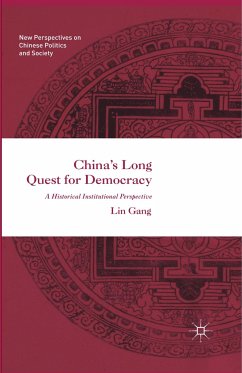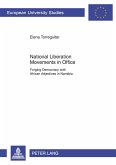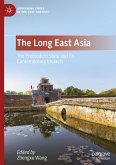China's quest for democracy is constrained by Confucian legacies and the norm of the one-party system. This book explores the feasible paths toward democracy in China, challenging methodological wisdom in employing quantitative changes in socioeconomic structure to predict dichotomous change in the political system.
This book project investigates Chinese perception of modern democracy and the possible paths they are going to take toward democratic goal. It employs theories of democratization and historical institutionalism to discuss the Chinese long quest for democracy, focusing on the reform period. In doing so, the author explores the issues from both ideological and institutional perspectives. Because China's political development is featured by incremental and continual process, the conventional dichotomy between democratic breakthrough and authoritarian resilience cannot catch the nuance in contemporary China. This book project therefore examines the changing role of the Chinese Communist Party from a 'revolutionary party' into a 'managerial or developmental party.' It raises an interesting question: Have the developmental party's positive performance in domestic and international affairs and its partial democratic reforms enhanced the regime's legitimacy and relieved public demand fora wholesale democratization?
The strengths of this project are its descriptive richness and theoretic innovation, as can be seen from its chapter structure (chapter 2-4). The challenge of it, however, is to enhance empirical studies by employing public survey data to support its hypothesis in Chapter 5 to verify the correlation between public perception of the government performance and their desire for competitive democracy. Survey data should also be employed in Chapter 4 to describe the evolution of democracy idea among the general public, in addition to the social elite dimension proposed by the author. Asia Barometer Survey data is one of important source, which are open to public use via application.
I think the author is qualified to product a high quality book on the topic. Writing from the perspective of scholarship based on the Chinese mainland, this book can distinguish itself from other works produced by scholars in the United States and other parts of the world. This project promises to offer a useful contribution to the field of China studies in particular and democratization studies in general.
I recommend you to publish this book after minor revisions.
The strengths of this project are its descriptive richness and theoretic innovation, as can be seen from its chapter structure (chapter 2-4). The challenge of it, however, is to enhance empirical studies by employing public survey data to support its hypothesis in Chapter 5 to verify the correlation between public perception of the government performance and their desire for competitive democracy. Survey data should also be employed in Chapter 4 to describe the evolution of democracy idea among the general public, in addition to the social elite dimension proposed by the author. Asia Barometer Survey data is one of important source, which are open to public use via application.
I think the author is qualified to product a high quality book on the topic. Writing from the perspective of scholarship based on the Chinese mainland, this book can distinguish itself from other works produced by scholars in the United States and other parts of the world. This project promises to offer a useful contribution to the field of China studies in particular and democratization studies in general.
I recommend you to publish this book after minor revisions.








